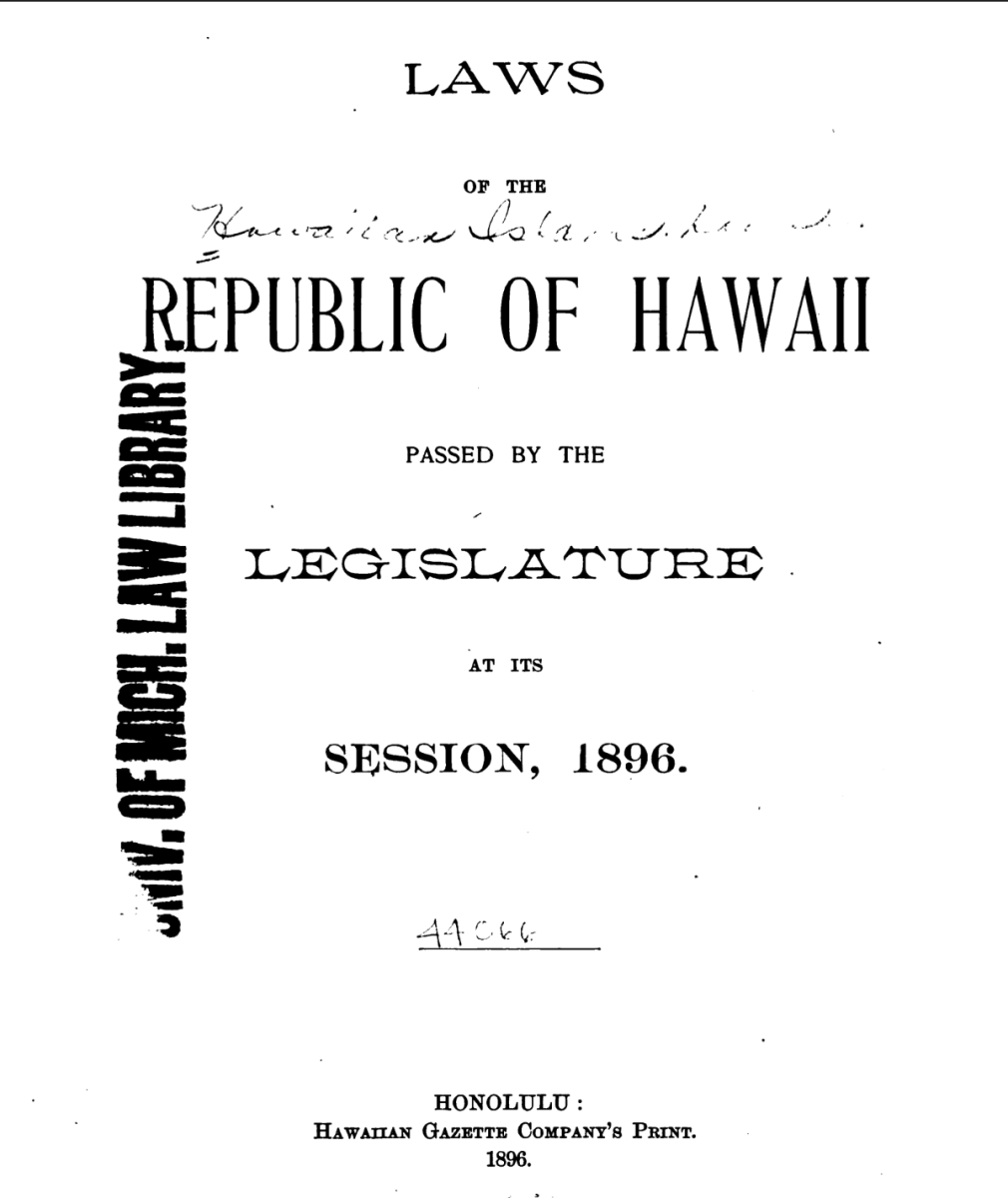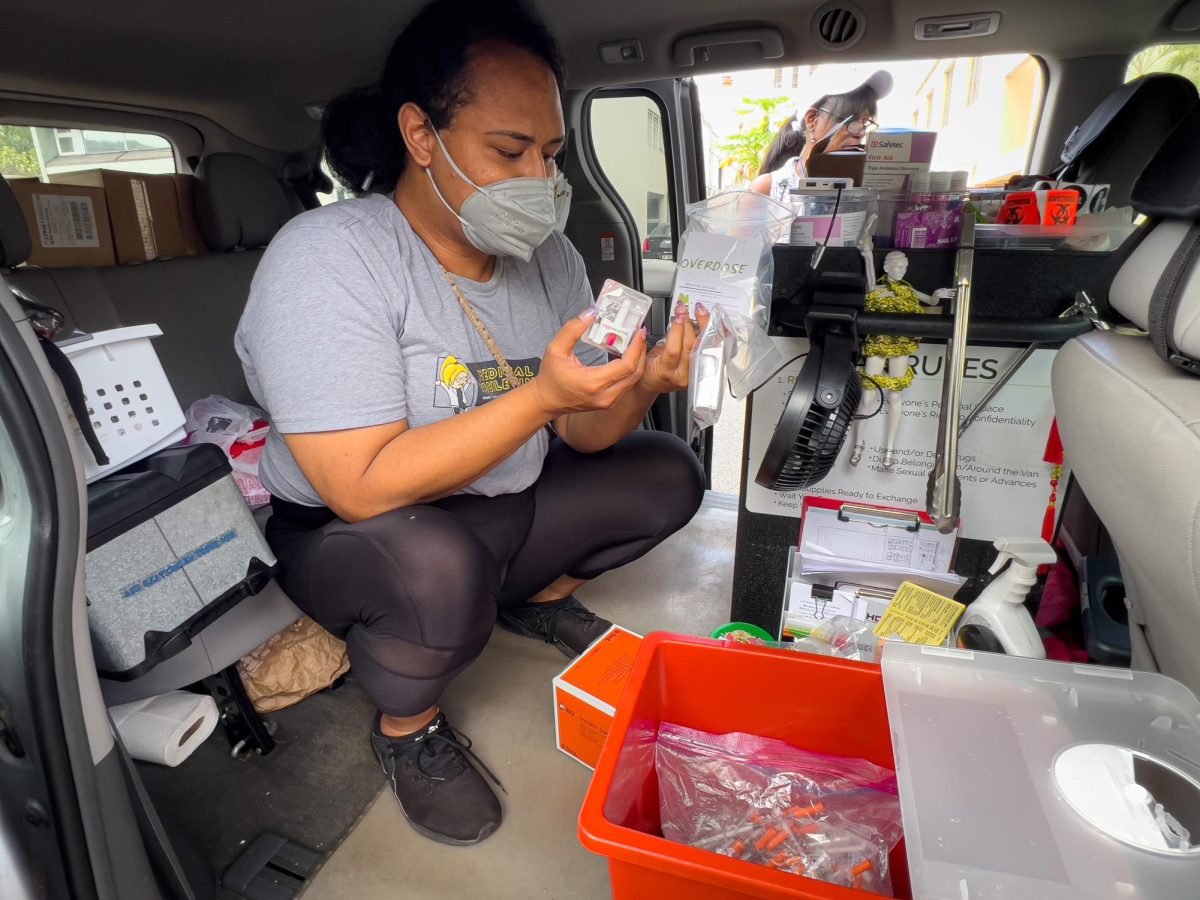A bill designed to uplift Hawaiian-language versions of state legislation has failed to pass.
Senate Bill 109 proposed that drafts of bills written in ʻŌlelo Hawaiʻi and their legal interpretations should be honored. If it passed, the bill would have applied to all legislative documents that are drafted in ʻŌlelo Hawaiʻi by lawmakers and even possibly Hawaiian Kingdom law prior to the 1893 illegal overthrow.
The Hawaiian Kingdom conducted most of their affairs in ʻŌlelo Hawaiʻi and then translated to English. After the overthrow of the Hawaiian Kingdom, the Provisional Government conducted procedures in English, moving away from using Hawaiian language. In 1896, English became the main language of instruction. Since the 1978 Constitutional Convention, both English and the Hawaiian language are Hawaiʻi’s official state languages.
Sen. Karl Rhoads, who represents District 13, introduced the bill as a way of promoting the equal use of both official languages at the state level.
“There may come a time, and it may not be that far in the future, where we just routinely write bills in Hawaiian and then it would be important there too, to have the legal framework set up already to say, you know which one is binding if there’s a conflict,” Rhoads explained.
He looked to Aotearoa (New Zealand) and Switzerland as examples of how multiple languages are used to carry out official state business. In fact, the New Zealand parliament recently rejected a bill that would have reinterpreted Te Tiriti o Waitangi, the country’s founding agreement, using the document’s English version.
There were key differences between the English and Māori translation that created interpretation conflicts. Most of the chiefs who signed the treaty in 1840 only signed the Māori version.
However, the state does not currently possess the capacity to fully implement the bill’s intended effects. Liʻi Nahiwa, a post-J.D. legal fellow with Ka Huli Ao Center for Excellence in Native Hawaiian Law and a PhD student in Political Science whose research specializes in Hawaiian language, explained that there are not enough people with the necessary level of proficiency in Hawaiian to meet this demand.
The bill was not heard during the legislature’s conference committee over the past two weeks since the Senate did not appoint their negotiators.
Scholars are still working on uncovering Hawaiian legal terminology written in Hawaiian language. The most recent book containing Hawaiian legal terms, “Nā Lula Hālāwai: A Parliamentary Guide to Conducting Meetings in Hawaiian,” was republished in 2023.
Nahiwa retains some hope about the bill’s future since a few current Richardson Law School students have good knowledge of the Hawaiian language. Still, making this law feasible would require training more people in translation and interpretation.
This bill has another limitation: it only recognizes the Hawaiian language typically taught through immersion schools and not the ʻŌlelo Niʻihau (Niʻihau dialect) that is still used by Niʻihau and West Kauaʻi residents. Unlike the Hawaiian language commonly used, the Niʻihau dialect remains unimpeded in its natural development even after the Overthrow.
According to Dr. Keao NeSmith, one of only three translators of the Niʻihau dialect, this lack of regard for native Niʻihau dialect speakers has its consequences.
This includes producing written and spoken information in the Hawaiian language that the average Niʻihau dialect speaker may find hard to understand in life or death situations, such as emergency services information on the radio during hurricane season or hospital staff explanations about a child’s condition.
NeSmith goes as far as to say that these conditions result in linguicide, defined as the intentional extinction of a language or dialect.
“Itʻs very dismissive of native speakers, and it advocates for the silencing of native speakers, voices and concerns,” said NeSmith. “Hawaiian language academics and the legislators must recognize officially that the Niʻihau community deserve to be supported linguistically in ways they define, not academics.”
The law enters conference committee this week, as lawmakers debate whether or not Hawaiian language versions of laws should also be honored if amendments made in the English language were added to those drafts.
“It’s a good step towards incorporating ʻŌlelo Hawaiʻi into our everyday use. I think that is also a part of restorative justice and the state’s kuleana to Native Hawaiians to support initiatives that really restore justice to Native Hawaiians, and one of those being by elevating ʻŌlelo Hawaiʻi because of the damage done by the United States to Native Hawaiians through language,” said Kaulu Luʻuwai, a Ka Huli Ao post-J.D. legal fellow.









